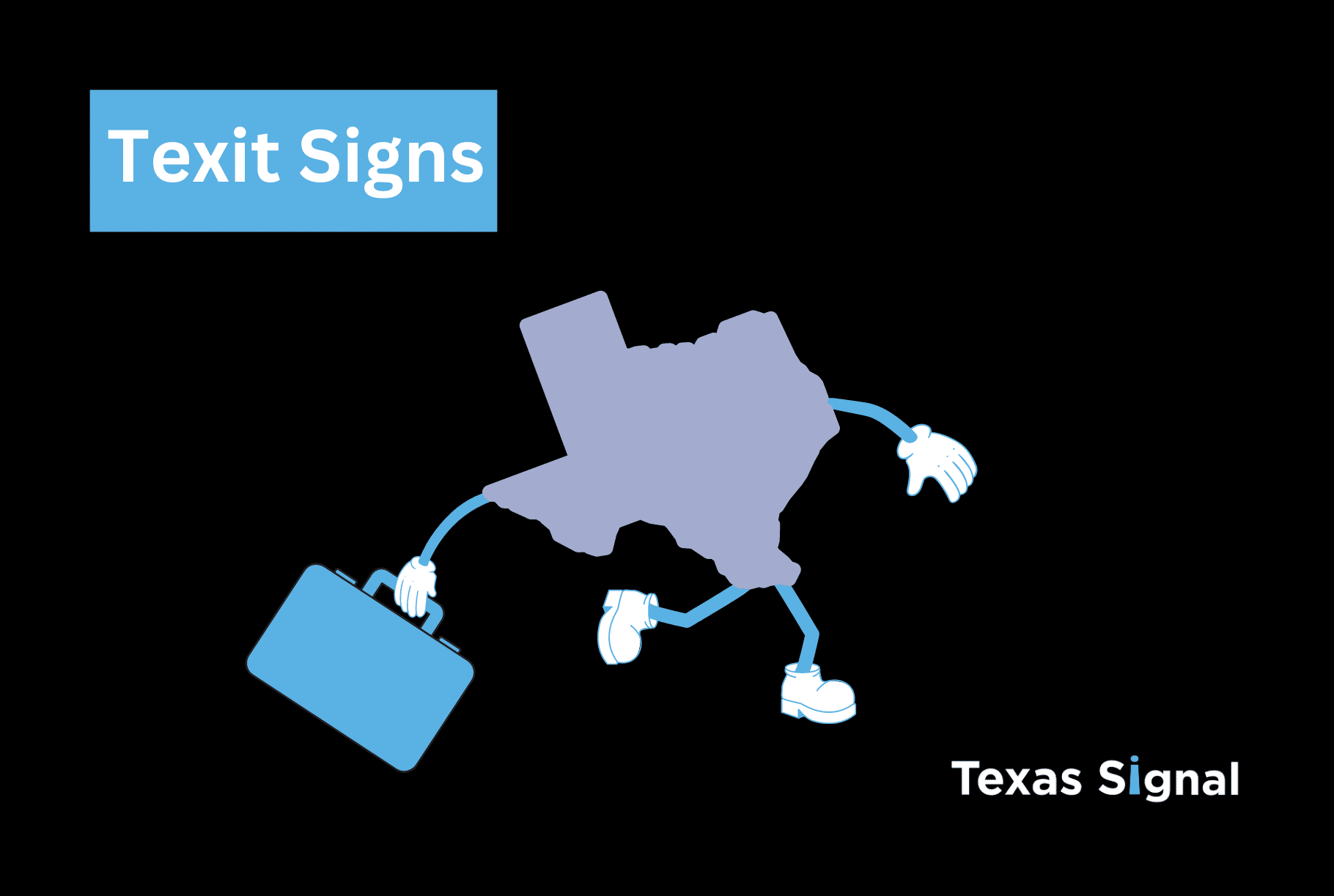Yesterday morning, we published a column about Georgia Congresswoman Marjorie Taylor Greene’s calls for a “national divorce,” that touched on the long and strange political history of secession in Texas. Even we were shocked by what happened next.
State Rep. Bryan Slaton, a Royse City Republican who represents a sprawling state house district east of Dallas, filed a bill titled the Texas Independence Referendum Act. This is just the type of culture warrior red meat Slaton has become well known for. Throughout his career, he’s advocated for a number of extreme positions, from advocating for a 100% tax credit for families that have 10 children (yes, 10) to anti-trans legislation and open war on public education, Slaton is a real character, to put it mildly.
Should his bill succeed, it will place a referendum on the ballot for the next general election giving Texans a simple “yes,” or “no,” option on if the Lone Star State should leave the union and become its own sovereign nation.
Therein lies the rub: the phrase “next general election,” would give most people the impression that the referendum would be on the 2024 ballot. That may not be the case, as Texas has long relied on the use of universal election dates when scheduling elections.
That could mean the referendum would be on the ballot in November of 2023, a period when few competitive elections will be held statewide outside of the race to become the next Mayor of Houston.
Back to the bill itself. If the act passes the house and voters ultimately approve it, the state will create a commission to study the feasibility of Texas leaving the union, and make recommendations to the legislature about what and how to do next.
Feasibility is an interesting word for Slaton to use because there are several obvious hurdles that quickly reveal what a bad idea secession really would be for Texas.
First, Texas receives more total federal funding every year than every state except for California, taking in more than $25 billion to the state’s coffers. That money is used on everything from federal highway funds to education and health care, and if Texas decided to head for the exit and become its own nation it would immediately have to figure out how to square the books without that massive tranche of money.
This leads us to the second major complication. While Texas as a state has long been rich on the proceeds from the oil and gas industry, it has also traditionally been an anti-tax haven. Texas doesn’t have a state income tax and fairly laughable corporate tax policies, making it virtually impossible to fill those budget gaps with existing revenue, while elected leadership has shown little willingness to raise taxes to fund schools or other essential services.
The hard economic facts aren’t the only reason this asinine proposal is mind-blowingly stupid. Texas is a state made up of 254 counties, some of which have fewer than a couple of hundred people living in them. Would all 254 receive statehood post-Texit?
And what about the bustling and diverse urban core of Texas? The largest counties tend to vote solidly Democratic while serving as a headquarters for or otherwise hosting some of the largest corporations in the United States. Their residents certainly have no interest in leaving the United States for a fly-by-night conservative nation, and how would American-based businesses that chose Texas for its lax tax policies handle having to navigate two separate bureaucracies?
Further, how would the United States respond to the rogue nation due south of Oklahoma? In the past, American presidents have placed retaliatory tariffs on nations creating tension in economic or national security contexts. Would the federal government place tariffs on Texas goods to make it harder for businesses manufacturing in Texas to compete with the 49 remaining states?
How would a company like Toyota or Tesla justify maintaining operations in a state with that level of uncertainty? Toyota has already had to adjust its production schedules in Texas to compensate for the unpredictability of our failing electric grid. How many more headaches can one company take?
These are the kinds of banal practicalities that a thoughtful lawmaker would take about 90 seconds to contemplate before dismissing this bill as bad policy and moving on as quickly as it hits the wastebasket.
But sadly, due to a decades-long race to the bottom in Texas politics fueled by gerrymandering and voter suppression, we don’t have thoughtful lawmakers. The Texas House and Senate are largely populated by politicians only interested in winning their next primary election and moving up the ladder and into higher offices.
The political polarization that we see in Texas primaries is a feature, not a bug, for today’s Texas GOP. Rather than roll up their sleeves and lay some bricks that can help us rebuild our state and nation, those in power in Texas would rather find new ways (or in the case of secession, old ways) to tear at the fabric of the American experiment and find new ways to make us feel farther apart from our neighbors.
It has created a culture of brain drain in Texas politics that has cheapened the Texas Legislature and made it harder, session after session, to get anything real done for the people of Texas.
Joe brings over a decade of experience as a political operative and creative strategist to Texas Signal, where he serves as our Senior Advisor and does everything from writing a regular column, Musings, to mentoring our staff and freelancers. Joe was campaign manager for Lina Hidalgo's historic 2018 victory for Harris County Judge and is a passionate sneakerhead.





